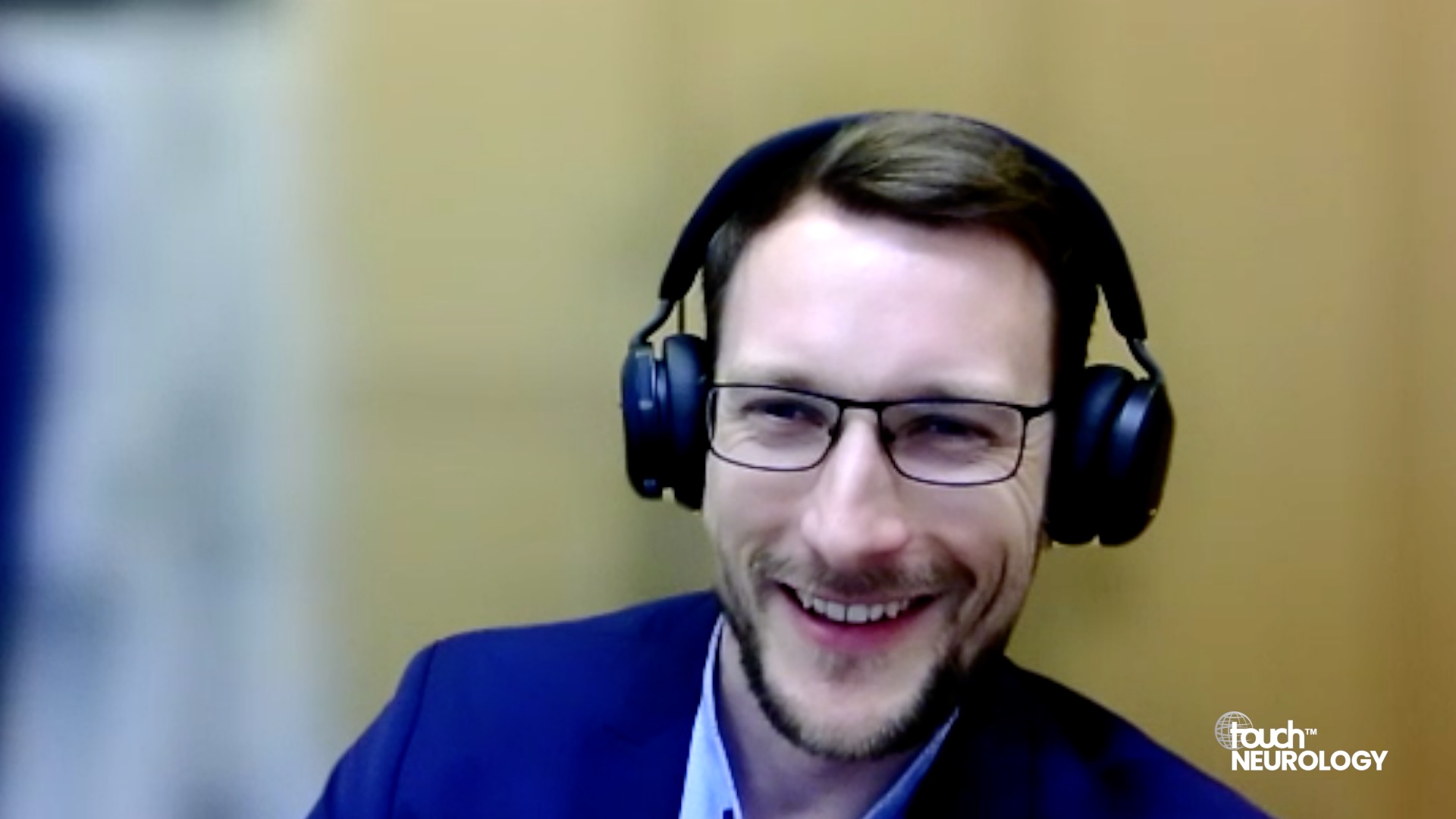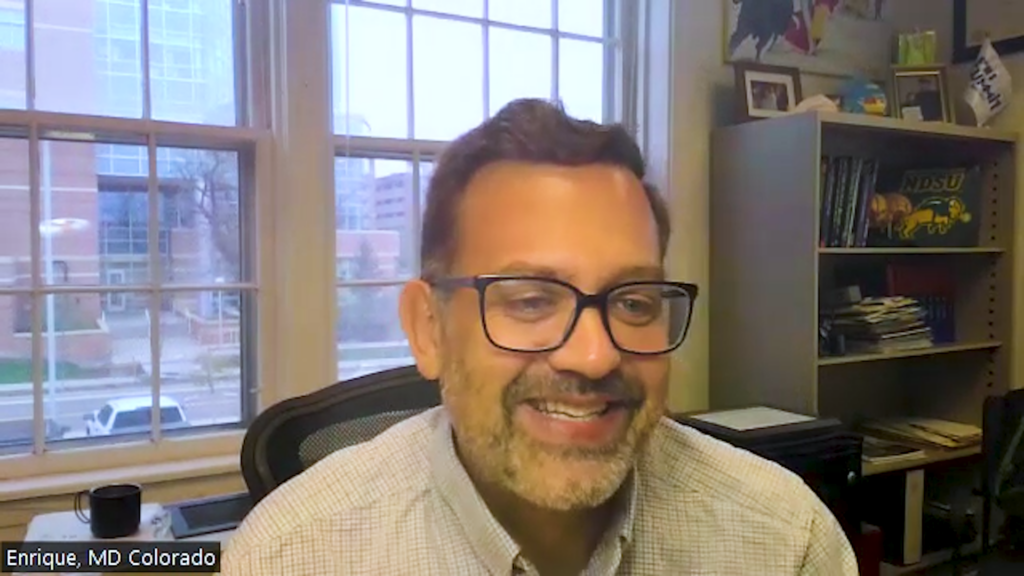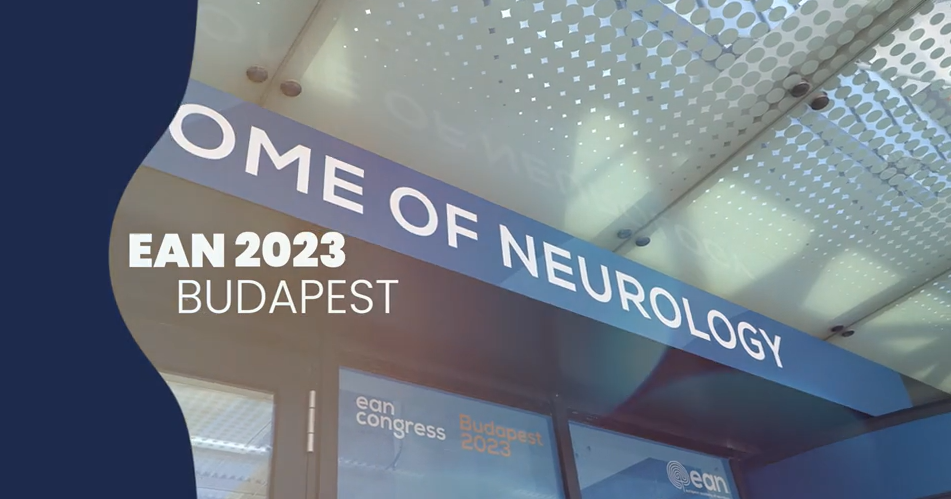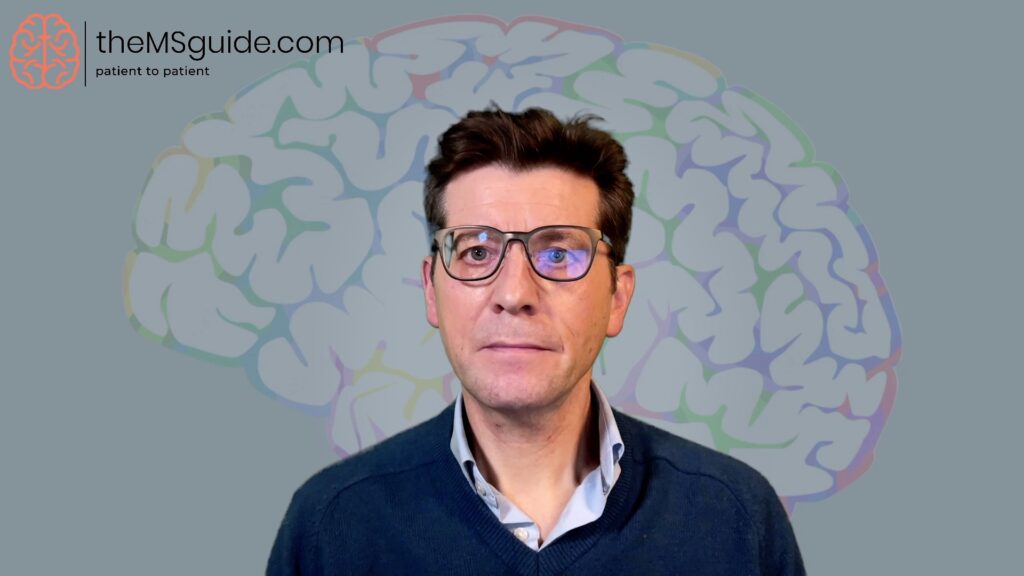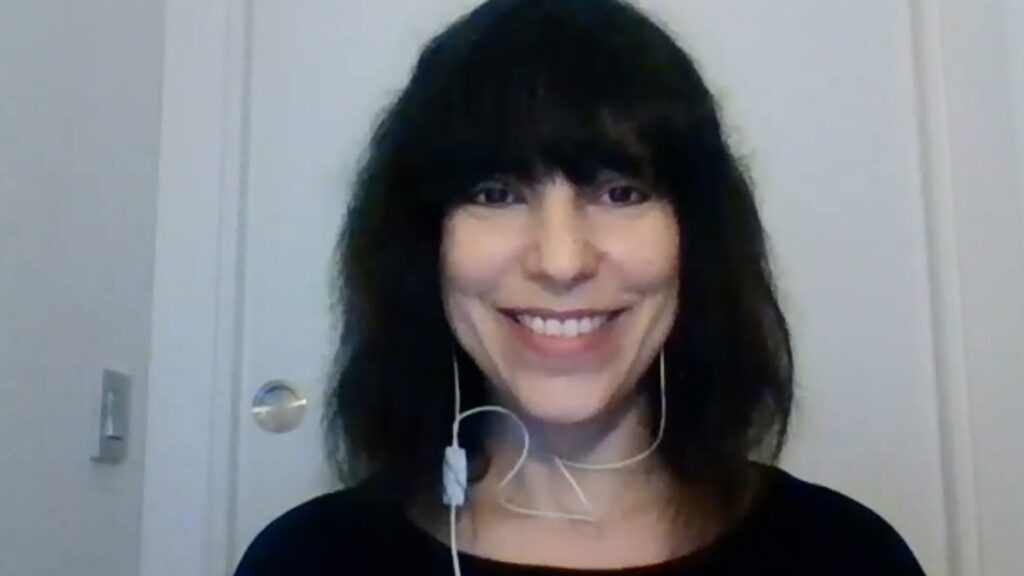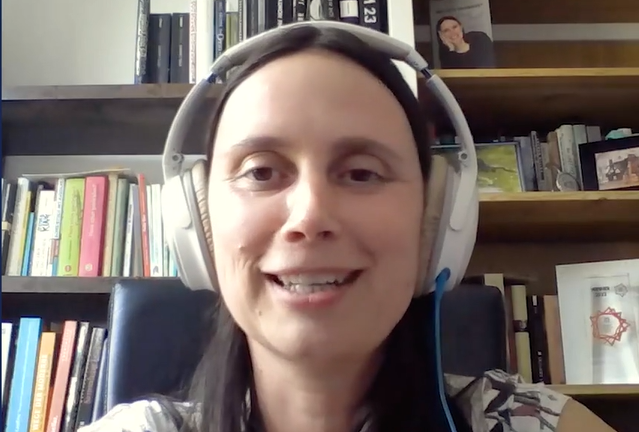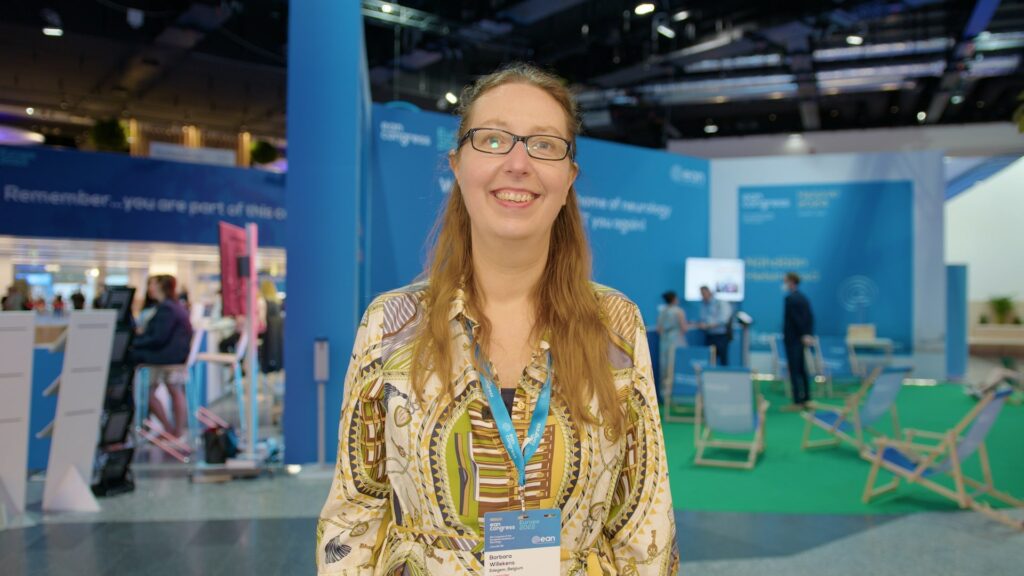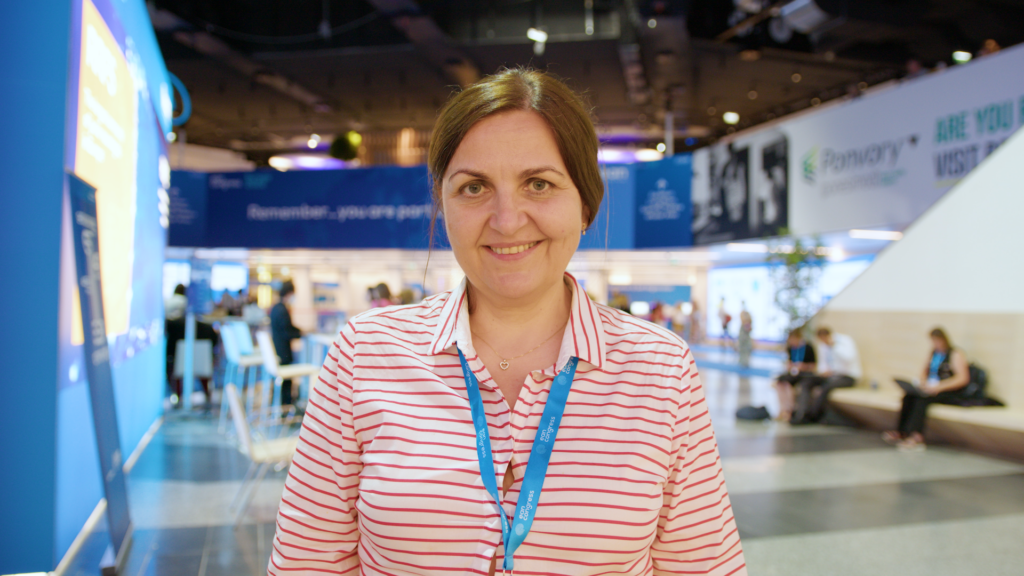Carolyn Young talks about the aims of the TONiC study and findings of the study to date.
FILMED AT THE EUROPEAN COMMITTEE FOR TREATMENT AND RESEARCH IN MULTIPLE SCLEROSIS (ECTRIMS) ANNUAL MEETING, SEPTEMBER 2016
PLEASE INTRODUCE YOURSELF AND YOUR RESEARCH INTERESTS
00:11 – Yes, so I’m Carolyn Young. I’m a Professor of Neurology in Liverpool, in the North of England. I have been running an MS service there for over 25 years. MS is a very common condition in the UK. We are running a very big national study in multiple sclerosis, examining factors that affect the quality of life of people living with MS. It’s a world first.
WHAT ARE THE AIMS OF THE TONIC STUDY?
00:43 – So we are very concerned about how patients cope with their MS; how it affects different aspects of their lives, not just biological aspects like stiffness or pain, but also psychological aspects like anxiety and depression. And we also are aware that there are social aspects to living with a chronic disease of isolation and stigma, and so we’re studying all of these and how they interrelate and how they influence the person’s quality of life. Our focus is not just academic interest; our focus is if we understand this better, we may be able to help people more effectively.
COULD YOU GIVE US AN OVERVIEW OF THE DIFFERENT PHASES OF THE STUDY?
01:32 – So first phase was actually to do qualitative research with people with MS, one-to-one or in focus groups, and ask them what they thought influenced their quality of life – which aspects of the condition were pivotal to them. This is termed in research as trying to understand the patient experience. And we compared that against what experts considered, and against a literature review. Now, there was commonality between those three different sources – patients, experts and the literature – but there were some things that also were not well studied in the literature which hadn’t really been mentioned by the experts but which patients told us were important, for example, stigma. Apparently, people with MS can feel stigmatised by their condition, and that has obvious implications to their life quality.
02:30 – The second phase, we are consenting thousands of patients across the UK so that we can invite them into the third phase, which is to do a detailed questionnaire using patient-reported outcome measures for every factor that we identified out of phase one. So we’re measuring their pain, their fatigue, their spasticity, their vision, their bladder, their depression, their anxiety, their stigma, all sorts of things through this questionnaire pack full of patient-reported outcome measures.
WHICH PATIENTS ARE ELIGIBLE TO PARTICIPATE IN TONIC?
03:12 – Any UK patient with multiple sclerosis. We put no limitations by type of MS. Patients with MS sometimes feel that relapsing remitting patients get studied in more detail. We are taking primary progressive, secondary progressive, and rapidly evolving MS – so-called aggressive MS – as well as relapsing remitting MS, and we’re taking them irrespective of their disability level. We want to understand the spectrum of experience from people who are mildly affected through to people who are extremely disabled. And I’m delighted that we’ve been very successful in getting participation across the spectrum.
THE STUDY HAS HIGHLIGHTED THE IMPORTANCE OF COPING. COULD YOU TELL US MORE ABOUT THIS?
03:58 – So one of the posters that we’ve put out recently at the European meeting, ECTRIMS, in London, was looking at coping. And it turns out that coping strategies differ between patients depending on their sex and on their age. And the reason this is important for clinicians is it shows that when we develop interventions to try and help people cope, we’re going to have to be mindful that younger people will need a different type of help than older people, and even that men use different coping strategies than women.
WHAT OTHER DEVELOPMENTS OF THE STUDY TO DATE ARE OF PARTICULAR INTEREST?
04:44 – So one really exciting development, which we only got confirmation of in the last fortnight, is that we have a successful ethics application to extend the study to look at changing quality of life over time. And, indeed, what we’re going to be doing over the next two years is we’re going to study the trajectories because TONiC stands for trajectories of outcomes in neurological conditions. We’re going to study the trajectories for MS over the first 27 years, from diagnosis up to year 27. And that will be an absolutely game-changing dataset. I should say that we’re a very collaborative group – we’re a group of clinicians, doctors, nurses, psychologists – and we believe in making our data available in the public domain to assist with patient care.

